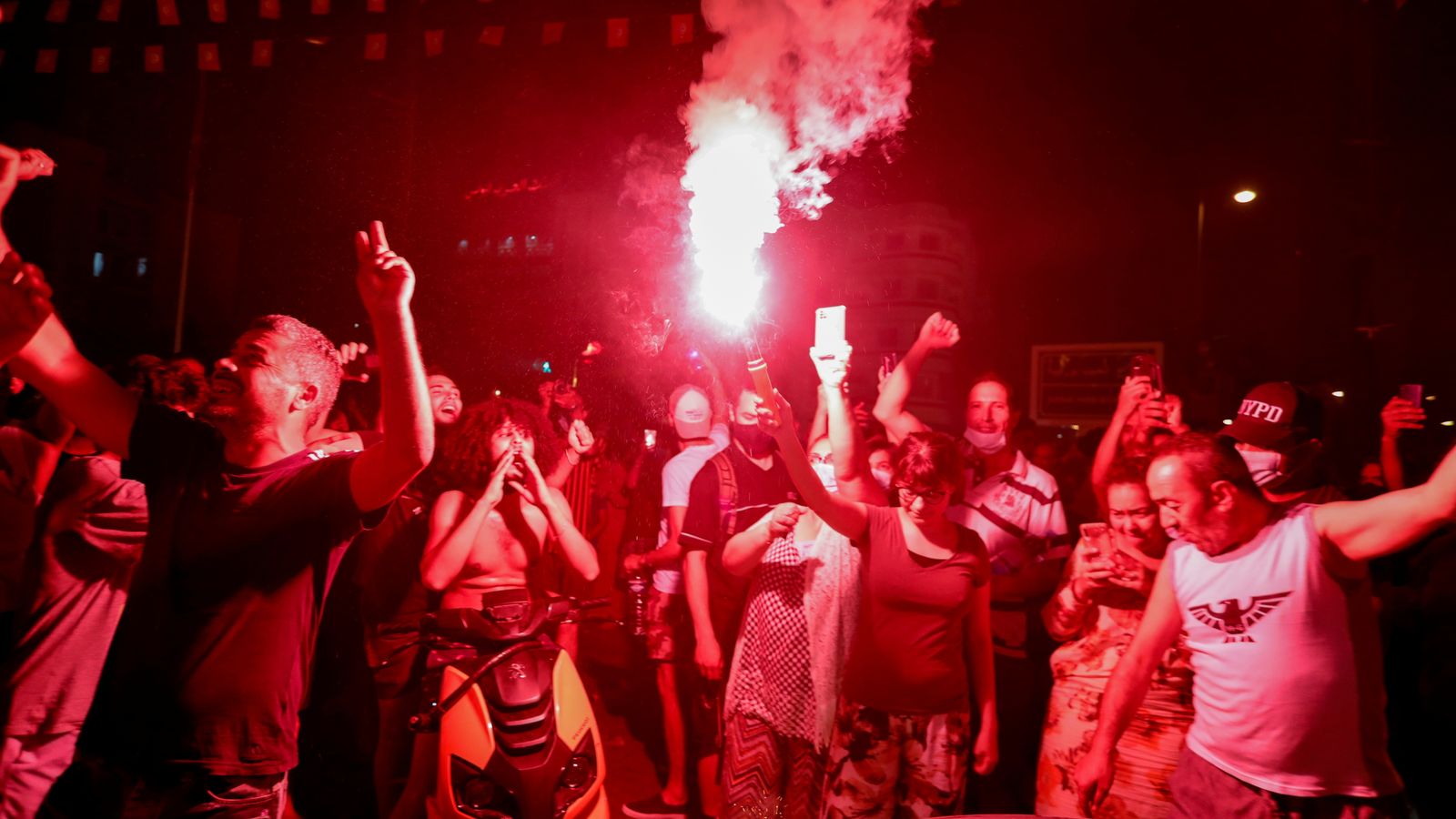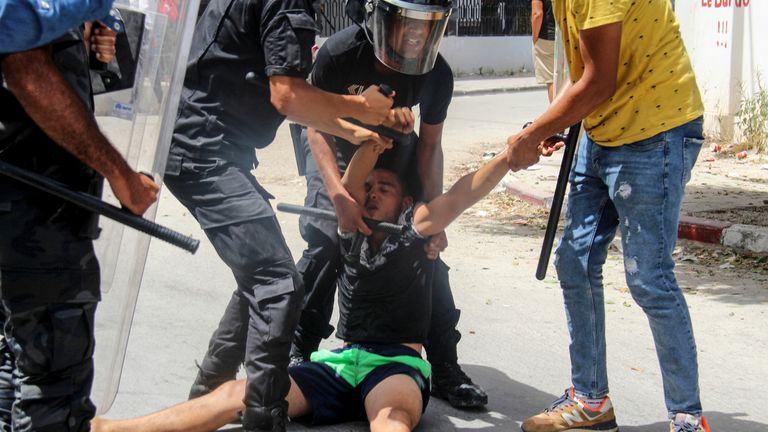Tunisia’s president has been accused of staging a coup by his opponents after he dismissed the prime minister and froze parliament following violent demonstrations over the country’s handling of the COVID-19 pandemic.
In a statement on Tunisia’s state television, President Kais Saied said he would assume executive authority with the support of a new prime minister after sacking Prime Minister Hicham Mechichi.
It is the biggest challenge yet to the democratic constitution Tunisia introduced in a 2011 revolution that split powers between the president, prime minister and parliament.
“We have taken these decisions… until social peace returns to Tunisia and until we save the state,” said Mr Saied.
After the announcement, crowds of people flooded the capital and other cities to support the president, cheering and honking car horns in scenes that recalled the revolution, which triggered the Arab Spring protests across the Middle East.
There were unconfirmed reports that military vehicles had surrounded the parliament building and members of the army had deployed to the state television building.
However, the extent of support for Mr Saied’s move against Tunisia’s fragile government and divided parliament was not clear.
The leader of the moderate Islamist Ennahda party, the biggest in parliament, called on Tunisians to take to the streets to stop what he called “a coup against the revolution and constitution”.
In a phone call to Reuters news agency, Rached Ghannouchi said: “We consider the institutions still standing, and the supporters of the Ennahda and the Tunisian people will defend the revolution.”
Former president Moncef Marzouki also joined Ennahda in labelling Mr Saied’s move a coup.
“I ask the Tunisian people to pay attention to the fact that they imagine this to be the beginning of the solution. It is the beginning of slipping into an even worse situation,” he said.
Earlier, tens of thousands of people reportedly took to the streets in the capital, Tunis, and other cities, with police blocking access to parliament and using tear gas to disperse some of the crowds.
Years of paralysis, corruption and growing unemployment had already soured the views of Tunisians on their political system before the coronavirus pandemic hammered the economy last year and infection rates shot up this summer.
Since the start of the pandemic, Tunisia has reported 563,000 cases and 18,369 deaths – but in the last month, it has seen its biggest spike with 5,625 cases on 24 July.
Mr Saied and the parliament were both elected in separate popular votes in 2019, while Mr Mechichi took office last summer.
Mr Saied, an independent without a party behind him, swore to overhaul a complex political system plagued by corruption.
Meanwhile the parliamentary election delivered a fragmented chamber in which no party held more than a quarter of seats.
Disputes over Tunisia’s constitution were intended to be settled by a constitutional court, but seven years after the constitution was approved, the court has yet to be installed after disputes over the appointment of judges.
Mr Saied has been enmeshed in political disputes with Mr Mechichi for over a year.



